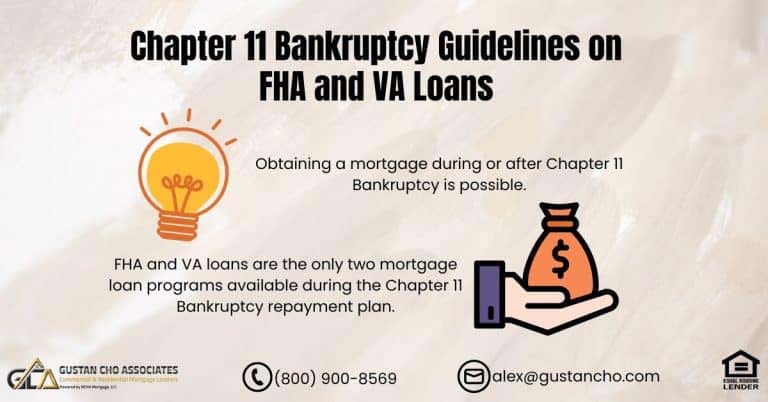This guide covers the frequently asked question on what is a sheriffs sale and how does it work. A sheriffs sale is the final process of foreclosure proceedings via judicial foreclosure. There are many stages in the foreclosure process that a homeowner in default goes through before the sheriff’s sale. John Strange, a senior mortgage loan originator at Gustan Cho Associates says the following about sheriffs sale process:
When a borrower is in default of their mortgage because they are unable to pay their mortgage payments, the lender files for foreclosure.
The lender files for judicial foreclosure in order to get a court order by a judge which allows the lender to sell their collateral to satisfy the mortgage the borrower owes them. The county sheriff’s office then executes this court order. The sheriff’s sale is the final process of the foreclosure proceedings.
Process and Timeline of the Sheriffs Sale
As mentioned earlier, the sheriff’s sale is the final stages of the foreclosure process. A sheriffs sale only happens after the foreclosure court trial. There is a long process prior to the sheriffs sale. The Lender first files a lawsuit to foreclosed on the defaulted mortgage loan borrower and needs to prove that the mortgage loan borrower is in default of the terms of his note. This process can take six or more months and once the mortgage lender wins the right to foreclose, then the final process is the sheriffs sale.
Understand the Sheriff’s Sale Process
From foreclosure to auction day, see exactly how a property ends up at a sheriff’s sale—and what it means for you.
The Objective of The Sheriffs Sale
The way the lender collects their money is from the sale of the subject property from the sheriffs sale. The subject foreclosed property gets sold at the sheriffs sale and the proceeds are forwarded to the lender. Any extra proceeds left over from the sheriffs sale goes back to the borrower. The waiting period after foreclosure is the date of the sheriffs sale.
The start date after a housing event is when the homeowners name get transferred out of the title of the home. This is when mandatory waiting period starts to qualify for another mortgage loan.
HUD guidelines mandate borrowers wait 3 years from the date of the sheriffs sale to qualify for FHA loans. VA loans require a two year waiting period after Sheriffs Sale to be eligible for VA home loans. USDA requires a three year waiting period. Fannie Mae and Freddie Mac requires a four year waiting period after a short sale or deed-in-lieu to qualify for conventional loans.
Sheriffs Sale Property Auction
A sheriffs sale is an auction that the public is invited to. The public is welcomed to bid on the property as well as other properties that are on that day’s public auction roster. People are notified of the sheriff’s sale by public notice that is published in local newspapers at least 20 days prior to the public auction. The county sheriff will order a deputy sheriff to post a foreclosure notice at the subject property that is being foreclosed.
What is a Sheriff’s Sale and How Does it Work?
A Sheriff’s Sale is the legal way a court-approved auction sells a house or land to pay off a money judgment, usually, when the owner has not kept up with their mortgage or other debt. Many people hear the term and worry, but it helps to know the steps involved to protect yourself or take advantage of the sale the right way if you’re a buyer. In this post, we’ll explain a Sheriff’s Sale, its steps, and why certain homes land on the auction block. We’ll also clarify how this sale differs from foreclosure and answer a few questions we hear the most.
What is a Sheriffs Sale?
A Sheriffs Sale is a court-ordered auction in which a local sheriff sells a piece of property to pay off a legal debt. This usually happens when a borrower hasn’t paid what they owe. The property being sold is usually a home that has already gone through foreclosure or another type of seizure. The property goes to the person who bids the most money, and the cash from the sale is used to pay back the creditors.
How Homes End Up at Sheriffs Sales
Homes can end up at a Sheriff’s Sale for several legal reasons, but the most likely is a mortgage foreclosure. Here’s what usually happens:
Missing Payments
The homeowner stops paying the mortgage for several months, often between 3 and 6 months. After that, the lender starts the foreclosure clock.
Filing the Case
The lender files a lawsuit to recover the money. If the court agrees and the homeowner doesn’t get back on track, the court hands down a foreclosure judgment.
Sheriffs Sale
If the homeowner still doesn’t settle the debt, the court tells the sheriff to auction the house. This auction is called the Sheriff’s Sale. The house goes to the top bidder, often a real estate investor or a person hoping for a good deal.
Post-Sale Process
After the home is sold, the new bidder gets the deed to the property. Yet the story does not always stop there. In some places, the former homeowner can still buy back the home after the sale. They must pay off the debt by a certain deadline to get the house back.
The Process of a Sheriffs Sale
Sheriffs Sale steps are based on local and state laws, but most places follow the same pattern. Here’s how it usually goes:
Notice of Sale
The homeowner gets a notice saying the sale is coming. This notice is sent by mail and often posted in public places, too. It tells the date, time, and place of the auction along with how much is owed.
The Public Auction
On auction day, the property goes on the block. These sales usually take place at the county courthouse or another chosen spot. Interested buyers raise paddles or shout bids until the final amount is called. The person who bids the highest amount is the new owner.
Handling Sale Proceeds
The money from this auction first pays the lender who started the foreclosure. It also covers auction costs. If any cash is left over after those bills, the former owner might see a check, though that is not common.
Ownership Change
The new owner gets the mortgage deed right after the gavel comes down. This deed officially moves the home from the last owner to the person who bought it. Sometimes, the buyer has to start the eviction process to remove the former owner.
Redemption Time
In some states, the old homeowner can get the property back by paying the total debt, plus any fees, within a set window. This redemption period usually spans three to six months after the auction.
Facing a Sheriff’s Sale? Know Your Rights
A sheriff’s sale can change everything for a homeowner or investor. Learn the process and how to prepare.
Sheriffs Sale vs. Foreclosure: Know the Key Differences
Both foreclosure and Sheriff’s Sale mean a homeowner can lose their property, but they aren’t the same. Let’s break them down:
Foreclosure
- What It Is: Foreclosure is a formal method that lets a bank take a home because the owner has stopped paying the mortgage.
- How It Works: When a homeowner defaults, the bank files for foreclosure in court.
- It can then take the home or sell it to get back the money owed.
- End Result: Foreclosure can lead to a Sheriff’s Sale, but a foreclosure court case by itself isn’t the sale. It’s the step before the house is auctioned.
Sheriffs Sale
- What It Is: A Sheriff’s Sale is a public auction where the house is sold to the highest bidder.
- This auction aims to pay back a court judgment.
- How It Works: After a court decides the bank can take the house, the Sheriff’s Sale is scheduled.
- This is the last move to turn the house into cash.
- End Result: The highest bid buys the house and the money from that auction goes first to the bank or whoever is owed money.
Common Questions About Sheriff’s Sales
Are Sheriffs Sales good for buying a house?
Absolutely! Sheriffs Sales can be a great way to snag a house usually for less money than market value. That said, watch out—these properties might carry unpaid liens, or the former owner could still be living in the house when you bid.
How Can I Learn About Upcoming Sheriffs Sales?
You can usually find out about Sheriffs Sales in several ways. Check your county sheriff’s website, browse the legal ads in local newspapers, or look for dedicated legal notice publications where the sales will be posted.
What if Nobody Bids on the House?
If a property doesn’t sell in the auction, the lender or creditor who started the foreclosure usually takes it back. After that, they might try to sell it through a real estate agent or list it in a different sale to find a buyer.
Can I Stop a Sheriff’s Sale?
Yes, you might stop or at least delay a Sheriffs Sale by filing for bankruptcy, working on a repayment plan, or negotiating a settlement with the lender. Alternatively, you could pay off the debt completely or catch up on any past-due mortgage payments.
Can the Former Owner Buy the House Back After the Sheriffs Sale?
In some states, the former owner has the right to redeem the property after the Sheriffs Sale. They can do this by paying the total debt amount within a given period, which is called the redemption period.
Can I Get a Loan for a House Bought at a Sheriffs Sale?
Getting a regular mortgage for a property bought at a Sheriffs Sale can be tough. Many banks hesitate because of possible legal issues or the house’s condition. However, private lenders or hard money lenders may be more open to giving you a loan in these situations.
Understanding how a Sheriffs Sale works is key for homeowners nearing foreclosure and for investors hunting for good deals.
Whether you’re trying to stop a Sheriffs Sale and keep your home or you’re looking to pick up a property at one, knowing each step and the possible risks will help you choose wisely. If a sale is already scheduled, talking to a lawyer or a financial advisor is a smart move to protect your rights and your money. For investors looking to buy at a Sheriff’s Sale, do your homework. Check the property’s condition, and find out if there are liens or if tenants are involved. These issues can affect the property’s value and your plans for it.
Qualifying For Mortgage After Sheriffs Sale
Homebuyers can qualify for mortgages after bankruptcy and foreclosures. Home Buyers who need to qualify for mortgage after bankruptcy and foreclosure with a five-star national direct lender with no mortgage lender overlays on government and conventional loans can contact us 7 days a week at Gustan Cho Associates at 800-900-8569 or text us for faster response. Or email us at gcho@gustancho.com. We are available 7 days a week, evenings, weekends, and holidays.
Buyers & Owners: Don’t Be Caught Off Guard
Sheriff’s sales have rules and timelines you need to know. Get the facts before it’s too late.








